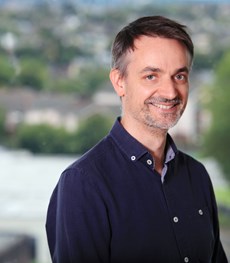Dr. John O’Toole

Adjunct Researcher
Contact Details:
Dr. John O’Toole, a former Research Fellow and Investigator at the INFANT Centre, now Head of AI Research at CergenX, an INFANT spin-out company.
John is working with the team at CergenX to develop robust AI models for early detection of brain injury in newborns which stems from decades of INFANT research and data.
John is also leading The AI-4-NICU Action which will create a pan-European multidisciplinary network with the clinical and technical expertise required to bring artificial intelligence (AI)-enabled decision-support tools to the neonatal intensive care unit (NICU).
In 1997 John received the B.E. degree and the M.Eng.Sc. degree in 2000 from the University College Dublin, Ireland, and the Ph.D. (2009) degree from the University of Queensland, Australia. His Ph.D. thesis received the Dean’s award for outstanding research in 2010. Prior to Ph.D. study, he worked in industry (2001-2003) as a consultant engineer in control systems and as a research assistant (2003-2005) at the Signal Processing Research Centre in the Queensland University of Technology, Australia.
His postdoctoral research has included topics in signal processing and biomedical applications at the Centre for Clinical Research (2008-2010), University of Queensland, Australia; DeustoTech-eLIFE Group (2011-2013), University of Deusto, Spain; and from 2013 on at the Neonatal Brain Research Group, now part of INFANT, at University College Cork, Ireland.
John has participated in many conferences such as the Organisational committee member for WoSSPA (International Workshop on Systems, Signal Processing and their Applications) 2013, ISSPA (International conference on Information Sciences, Signal Processing and their Applications) 2012, and ISSPIT (IEEE Symposium on Signal Processing and Information Technology) 2011; international liaison for ISSPA 2010 and WoSSPA 2011; technical programme committee for ISSPIT 2015. And he has been interviewed for RTÉ Radio 1 programme, Bright Sparks, May 2015; science show, Electric Brains, at Ploughing Championships (2015) and National School (2016); presented at Meet the Engineers, Lifetime Lab, Cork (2016).
John has received recognition for Outstanding Service Award for contributions to ISSPA conference organisation in Quebec, Canada (2012); Ph.D. received Dean’s Award for Outstanding Research Higher Degree Theses in Brisbane, Australia (2009)
He has acted as editor for Special issue on Advances in Nonstationary Electrophysiological Signal Analysis and Processing in EURASIP J Adv Signal Process, 2012 and a reviewer: IEEE Trans Signal Process, IEEE Trans Biomed Eng, Digit Signal Process, IET Signal Process, Int J Comp Math, Med Bio Eng Comput, Comput Biol Med, Behav Brain Funct.
He has received funding from the Government of Ireland Postdoctoral Fellowship (Irish Research Council), 2014–2016; Workshop for Science Week, Science Foundation Ireland, 2015; Australian Postgraduate Award, The University of Queensland, Australia, 2006–2008; Ericsson Postgraduate Scholarship, University College Dublin, 1988–2000.
His teaching roles included, co-supervising undergraduate and postgraduate (master and Ph.D.) students; lecturing, Digital Signal Processing (semester 2 in 2015 and 2016, University College Cork).
Research interests include time-frequency signal analysis, discrete-time signal processing, efficient algorithm design, and biomedical signal analysis. Papers and computer code can be found at http://otoolej.github.io/.

